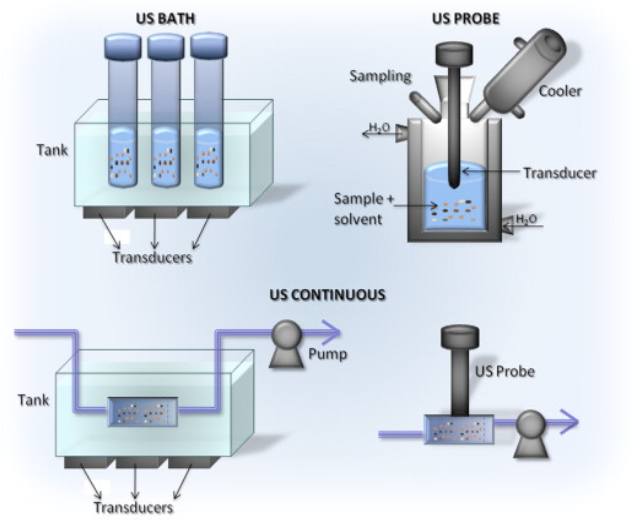Industrial control systems (ICS) form the backbone of modern manufacturing, automation, and critical infrastructure operations. Yet, when recurring errors such as the infamous “FFFF error” emerge, they can wreak havoc on efficiency, safety, and profitability. The FFFF error is notorious for causing unexpected system shutdowns, data inconsistencies, and even operational downtime, costing industries millions. In this guide, we will explore how to identify, troubleshoot, and prevent these recurring errors using expert-driven approaches and actionable strategies. For additional resources and tools, don’t forget to explore Hangoutgraphics.
Understanding the FFFF Error in Industrial Control Systems
The FFFF error in industrial control systems typically represents a hexadecimal code indicating system-level faults, such as memory corruption, hardware failures, or communication issues between components. While it might appear as a cryptic message, understanding its root causes is the first step toward effective prevention.
Studies show that approximately 60% of recurring ICS errors stem from misconfigured hardware or outdated firmware. The remaining 40% often arise due to cybersecurity breaches, poor system integration, or lack of regular maintenance.
Common Causes of Recurring FFFF Errors

- Firmware and Software Incompatibility
Outdated firmware or incompatible software can lead to system conflicts, resulting in the FFFF error. As ICS components rely on precise synchronization, any mismatch can trigger recurring issues.
- Hardware Malfunctions
Faulty sensors, controllers, or actuators are common culprits behind the FFFF error. Over time, wear and tear, voltage fluctuations, and environmental factors like heat or dust can degrade hardware performance.
- Network Communication Failures
Many industrial systems operate over complex networks. A breakdown in communication between Programmable Logic Controllers (PLCs), Human-Machine Interfaces (HMIs), and Supervisory Control and Data Acquisition (SCADA) systems often leads to the dreaded FFFF error.
- Insufficient Cybersecurity Measures
With the rise of cyberattacks targeting critical infrastructure, poor cybersecurity practices can compromise ICS operations. Malware infections or unauthorized access can corrupt data, triggering recurring errors.
- Lack of Preventive Maintenance
Industrial systems demand regular upkeep to ensure seamless functionality. When maintenance schedules are overlooked, minor issues can escalate into persistent FFFF errors.
Related: What are AI’s big challenges in 2025?
Impact of Recurring FFFF Errors on Industrial Systems
Recurring FFFF errors not only disrupt operations but also impose significant financial and reputational losses. Downtime costs in manufacturing industries can reach up to $260,000 per hour, according to a study by Aberdeen Group. Additionally, safety risks associated with malfunctioning systems can jeopardize worker well-being and environmental compliance.
Proven Strategies to Prevent Recurring FFFF Errors
- Regular Firmware and Software Updates
Keep all firmware and software components updated with the latest patches and versions. Manufacturers frequently release updates to fix bugs, enhance security, and improve compatibility.
- Implement Predictive Maintenance Programs
Leverage advanced tools like IoT sensors and machine learning algorithms to predict and prevent hardware failures before they occur. Predictive maintenance reduces downtime by 30-50% and extends equipment lifespan.
- Strengthen Network Security
Protect ICS networks with firewalls, intrusion detection systems, and strong encryption protocols. Conduct regular penetration testing to identify vulnerabilities. For step-by-step guidance, click on https://hangoutgraphics.com/tag/error-ffff-rdr2-crack/.
- Train Your Workforce
Equip your team with knowledge about best practices for ICS operations and error troubleshooting. Human error contributes to 23% of system failures, making workforce training essential.
- Utilize Redundant Systems
Implement redundant controllers, power supplies, and communication paths to minimize the impact of individual component failures. Redundancy ensures uninterrupted operations during emergencies.
- Conduct Comprehensive System Audits
Regular audits help identify weak links in the system, such as outdated hardware, improper configurations, or cybersecurity gaps. Addressing these proactively can prevent recurring FFFF errors.
Related: A Short History Of HTML
Insights from Industry Experts
Industry leaders emphasize a proactive approach to error prevention. For instance, a study by McKinsey highlights that companies integrating predictive maintenance and robust cybersecurity measures see a 25% reduction in downtime-related losses. Experts also recommend collaborating with trusted vendors who offer reliable technical support and system upgrades.
How Technology is Transforming ICS Error Management
The integration of advanced technologies like AI, IoT, and cloud computing is revolutionizing industrial error management. AI-powered diagnostic tools can analyze system logs, identify error patterns, and suggest corrective actions in real-time. Meanwhile, IoT-enabled devices provide remote monitoring capabilities, allowing technicians to address issues before they escalate.
Cloud-based ICS solutions further enhance reliability by enabling centralized data management and remote updates. Companies adopting these technologies report higher system reliability and reduced error frequencies.
FAQs
What are the main reasons for recurring FFFF errors in ICS?
Recurring FFFF errors often result from firmware incompatibilities, hardware malfunctions, network failures, or insufficient cybersecurity measures.
How can predictive maintenance help prevent FFFF errors?
Predictive maintenance uses sensors and AI to monitor equipment health, predicting failures before they occur. This proactive approach minimizes downtime and recurring errors.
Are outdated systems more prone to FFFF errors?
Yes, outdated systems are more vulnerable due to lack of support, compatibility issues, and cybersecurity risks. Upgrading or modernizing such systems is recommended.
What role does cybersecurity play in preventing FFFF errors?
Cybersecurity protects ICS networks from malware, unauthorized access, and data corruption—common triggers for recurring FFFF errors.
How can workforce training reduce FFFF errors?
Trained personnel are better equipped to operate systems correctly, identify issues early, and implement best practices, reducing the likelihood of errors.
What industries are most affected by FFFF errors?
Manufacturing, energy, transportation, and water treatment industries are particularly susceptible to FFFF errors due to their reliance on ICS for critical operations.
Conclusion
Preventing recurring FFFF errors in industrial control systems requires a combination of proactive strategies, advanced technologies, and robust cybersecurity measures. By investing in predictive maintenance, training your workforce, and keeping systems updated, industries can ensure uninterrupted operations and significant cost savings.




